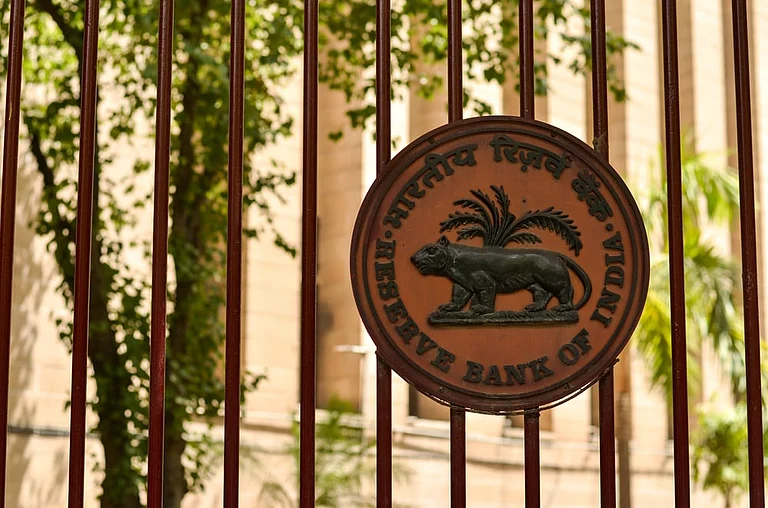
Summary of this article
50 per cent of the respondents in the IRIS 5.0 survey believe retirement planning should start before age 35
67 per cent believe they know their retirement needs
Women report higher financial confidence than men
Gig workers show improved financial preparedness, scoring 50
The retirement preparedness of urban Indians shows a slight dip in score from 49 to 48. As per the India Retirement Index Study (IRIS) 5.0, released by Axis Max Life Insurance and Kantar Insights, a marketing data and analytics firm, today, October 29, 2025, the survey reflects an improvement in overall retirement readiness among urban Indians despite a slight decline of more than half a point (rounded to one). The 5th edition of the survey shows a stable health index score of 46 compared to 2024, but a plunge from 52 to 51 in the financial index and from 59 to 58 in the emotional index in the 5.0 survey in 2025. The composite retirement index measures the financial, health, and emotional preparedness of urban Indians.
It reveals rising awareness about retirement planning, with around half (50 per cent) of the urban Indians believing retirement planning should begin before the age of 35, compared to 39 per cent of respondents in 2022. It also highlights that 86 per cent of the respondents aged 50 and above regret not starting their investment earlier.
Here are more details on the three components of the IRIS 5.0.
Financial Index – Score 51
While 67 per cent of people say that they know how much they need for retirement, the remaining 38 per cent have no idea of the amount they would need for the same lifestyle post-retirement. Per the survey, 7 in 10 people believe that Rs 1 crore is a sufficient retirement corpus for them. However, awareness about retirement corpus is not reflected in corpus adequacy, as only 37 per cent of people expect their corpus to last more than 10 years after retirement. Of the remaining, 30 per cent expect the corpus to last 5-10 years, 25 per cent believe it to sustain 2-5 years, and 8 per cent of people feel that their retirement corpus is sufficient only for one year after retirement.
Health Index – Score 46
Around 79 per cent of respondents believe that they will stay healthy and active during retirement. As per the survey, 43 per cent exercise daily with regular gym, yoga, or meditation, and using health-tech devices like fitness trackers is also becoming more prevalent.
Health insurance ownership has also risen by 7 points to 50, reflecting growing awareness and action in the health segment.
Emotional Index – Score 58
Emotional preparedness points out concerns about loneliness and dependency after retirement. As per the report, about 72 per cent of surveyed people feel worried about their dependency on children or other family members after retirement, and at the same time, 71 per cent of people express concerns that they will be lonely during their retirement years.
It highlights the need for stronger family and community engagement in later years as the ageing population is rising in India.
Notably, a significant number of people, 79 per cent, think that factors, like increasing pollution and global warming, will significantly affect their post-retirement life.
Region-Wise Data
Region-wise data shows East to remain the most prepared region in terms of retirement planning with a 52 score, followed by West (50), North (48), and South (45). North shows the highest jump in health index, and West in financial preparedness. Further, Tier I cities are picking up in the health and financial index more than Tier II cities, highlighting the scope of spreading retirement awareness and preparedness in small cities.
However, no region reflects a change in emotional index score. It highlights the scope to work in this segment.
Women’s Retirement Preparedness
Women, particularly working women, continue to lead in overall retirement readiness. They show higher financial confidence and health preparedness than their male counterparts. Despite this, they feel more concerned about loneliness than males.
Gig Workers
In the current economic environment, a lot of emphasis is being given to the gig workers and bringing them, usually informal sector workers, under the social security umbrella. The survey notes that gig workers are making strides. Their financial confidence gap is shrinking, and they score 50 compared to urban India’s score of 51 in the financial index. They are investing more in fixed deposits and traditional savings plans, and one-third of them have no plan to retire.
Barriers To Retirement Planning
The report also highlights factors that serve as barriers to retirement planning. These include reliance on children for old age care, having sufficient family wealth, no trusted advisors, and other immediate priorities pushing retirement planning for later.
Empasising the rising number of older adults and the need for retirement planning, Sumit Madan, MD and CEO, Axis Max Life said, “IRIS 5.0 signals a clear shift towards smarter and more realistic retirement planning” and added, “The findings underline how the next phase of growth for the industry will hinge on delivering more innovative, advisory-led, and inclusive retirement solutions.”
The survey underscores that retirement awareness among urban Indian women and gig workers has improved overall; however, the next step following awareness is “action”. Also, there should be more focus on improvement in the emotional index.
The survey included responses from 2242 households in 28 cities across India. It comprised salaried and self-employed individuals in the age group of 25 to 65 years.



















